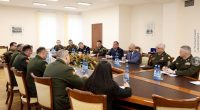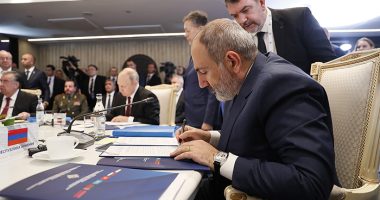YEREVAN — Azerbaijan-Armenia relations in 2024 were marked by active high-level meetings, communication, and written exchanges, primarily focusing on normalizing relations, agreeing on the text of a peace agreement, border delimitation and demarcation, unblocking infrastructure, and addressing humanitarian and other issues. It is highly likely that in 2025, the bilateral negotiation formats between Armenia and Azerbaijan on various issues will continue to evolve, becoming more effective than the approaches tried by both sides so far. This was stated in the annual report on external threats to Armenia for 2025, published by the Republic of Armenia’s Foreign Intelligence Service.
“Based on the analysis of various facts, information, and phenomena, as of the time of publishing this report, we do not assess the probability of a large-scale military attack by Azerbaijan against Armenia as high. However, in the absence of treaty-based peace and inter-state relations, the threat of localized tensions and escalations at the border, as part of Azerbaijan’s policy of using force as a tool against Armenia, will persist. A significant guarantee for mitigating this risk could be the smooth continuation of the border delimitation and demarcation process that began in 2024, in accordance with mutually agreed-upon procedures.
In this context, the Service’s task is to continually assess whether Azerbaijan’s consistent development and financing of harmful rhetoric against Armenia’s independence, sovereignty, and territorial integrity represent an attempt to ‘legitimize’ its own intention to use force against Armenia. Such rhetoric includes the so-called narratives of ‘Western Azerbaijan and Western Azerbaijanis,’ ‘Armenia’s militarization,’ ‘revenge,’ and the ‘Zangezur Corridor,'” the report stated.
The secretary of Armenia’s Security Council, Armen Grigoryan, expressed concern on Thursday over Azerbaijan’s renewed threats of military action against Yerevan.
“Besides, we see that intensive military exercises are conducted [in Azerbaijan,] and we see intensive [cargo] flights from other countries, which are most likely transporting military equipment to Baku,” Grigoryan told reporters.










